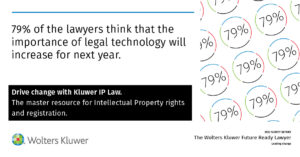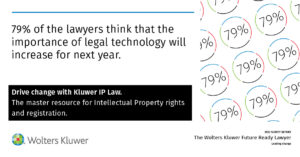As with other aspects of trade mark law, the UK and EU have adopted asymmetrical arrangements about exhaustion post-Brexit. The arrangements result in uneven outcomes on enforcement against parallel imports for UK and EU right-holders. It remains to be seen how the principle of exhaustion of UK rights will develop in the hands of the UK government and the courts.
Currently, thanks to section 12 of the Trade Marks Act 1994, holders of UK rights will find their rights are exhausted once their goods have been placed on the market in the UK or anywhere in the EEA. When a right is exhausted, it is no longer enforceable. The reverse does not apply for holders of EU rights, whose rights will allow them to enforce against goods placed on the market in the UK which make their way into the EU.
The direct consequence is that UK right-holders cannot enforce against parallel imports coming to the UK from the EEA. In contrast, EU right-holders would be able to enforce their rights against parallel imports moving from the UK into the EU. This has the effect of placing UK and EU businesses on an uneven footing, particularly in industries where licensing plays a big role. Under the post-Brexit lopsided exhaustion regime, licensors would struggle to enforce territorial exclusivity of licensed rights for their UK licensees.
The reason for the asymmetry is the Northern Ireland Protocol.
In a recent consultation on exhaustion of IP rights post-Brexit, the UK government set out its preliminary view that adopting an exhaustion regime where products placed for sale in the EU do not exhaust UK rights may be incompatible with the Northern Ireland Protocol. Essentially, they fear that if UK rights are enforceable against parallel imports from the EEA, this would amount to an obstacle against the free movement of goods between Northern Ireland and the Republic of Ireland.
In its consultation, the government set out three options moving forward: 1) the status quo or UK+ regime of exhaustion; 2) an international regime of exhaustion where goods placed anywhere worldwide would trigger exhaustion of UK rights; and 3) a national regime of exhaustion where goods placed anywhere, including the EEA, would not trigger exhaustion of UK rights. There is also a hybrid option where exhaustion varies sector-by-sector.
Needless to say, option 2 would cause chaos for most industries, particularly ones where regulatory requirements are stricter in the UK than in other parts of the world. If exhaustion applied to products placed anywhere worldwide, businesses targeting the UK and any other market may struggle with maintaining the integrity of their brands. The influx of branded products which were not meant for the UK market would present serious challenges for businesses, regulators, and ultimately consumers.
The status quo or option 1 would pose similar challenges, particularly as regulatory requirements and rules diverge between the UK and EU moving forward. These problems may not be as visible to brand owners and trade mark professionals given many EU and UK regulations uphold similar standards at the moment. However, as UK departs further from EU regulatory regimes and markets reshuffle, things will change.
As discussed above, the government holds concerns about the compatibility of option 3 with the Northern Ireland Protocol. Legal arguments can be made to the contrary, especially regarding the compatibility of a national regime with the principle of the free movement of goods as it applies through the Northern Ireland Protocol. Implementing a national exhaustion regime would not automatically entail harsher border checks or restrictions on the movement of goods. It is worth noting that the EU is equally as committed to the Protocol as the UK government, and the EU has had no qualms implementing an EU-wide exhaustion regime which excludes the UK, including Northern Ireland.
Ultimately, right holders crave certainty in these uncertain times. Unfortunately, as with many things Brexit, we will have to wait and see until the politicians decide whose interests take priority. There is no timescale set for consultation and so things are unlikely to change for a while. In the meantime, holders of UK rights who trade directly or indirectly in the EEA will need to be mindful of the impact of parallel imports into the UK on their businesses.
_____________________________
To make sure you do not miss out on regular updates from the Kluwer Trademark Blog, please subscribe here.
 Source: http://trademarkblog.kluweriplaw.com/2021/09/29/brexit-impact-on-exhaustion-of-rights/
Source: http://trademarkblog.kluweriplaw.com/2021/09/29/brexit-impact-on-exhaustion-of-rights/
- arguments
- auto
- Blog
- border
- branded
- brands
- Brexit
- businesses
- Cause
- change
- Checks
- coming
- Consumers
- content
- Courts
- develop
- EU
- Forward
- Free
- goods
- Government
- How
- Hybrid
- Impact
- Including
- industries
- International
- IP
- ireland
- IT
- Law
- Legal
- Licensing
- mark
- Market
- Markets
- Option
- Options
- Other
- owners
- present
- Products
- professionals
- regulations
- Regulators
- regulatory
- Republic
- Requirements
- reverse
- rules
- sale
- set
- So
- standards
- start
- Status
- the world
- trade
- trademark
- Uk
- UK government
- Updates
- View
- wait
- WHO
- world
- worldwide
- worth











